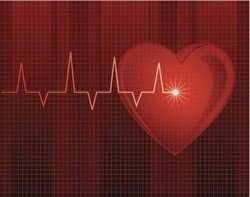Cardiac rehabilitation regimes at home monitored with wearable sensors
There is documented evidence that physical inactivity increases the risk of heart disease and stroke by 50 %, and that cardiac rehabilitation significantly benefits patients. However, only a fraction of patients participate in and adhere to such exercise programmes. The EU-funded HEARTWAYS (HeartWays - Advanced solutions for supporting cardiac patients in rehabilitation) project has proposed home-based rehabilitation regimes as an alternative. In order to monitor patients without the need for hospitalisation, they worked to develop wearable sensors and use intelligent algorithms that would aid patient follow-up and management. In Europe, generally, only 46 % of eligible patients are referred to rehabilitation programmes, and there is massive potential for the HEARTWAYS system. The system is composed of three layers. The first one is the monitoring layer that consists of a T-shirt with sensors measuring the ECG and chest amplitude, attached to a wireless device computing heart rate and respiration rate; a set of wearable sensors monitoring the position and movement of different parts of the body. The information obtained from the monitoring layer is analysed by the second layer to provide live feedback to the patient while performing the recommended physical exercise routines. This layer also performs a multi-parametric assessment of the patient's status, evolution, performance and predicted CV risk which provides further insights to the medical team. The final management layer is devoted to improving the way patients are managed by healthcare professionals and also to helping patients adhere to the treatment. It contains on-the-move patient support, a patient portal for sharing information with other patients, and a follow-up platform for professionals who are provided with treatment and adjustment suggestions. Highlights of project dissemination are international events held in Vilamoura (Portugal) and Dubrovnik (Croatia). Articles on the research results have appeared in many conferences, book chapters and journals, including Cardiovascular Engineering and Technology, Journal of Computational Science, and Medical & Biological Engineering & Computing. A video is available describing the main work of HEARTWAYS. Long term, the HEARTWAYS deliverable offers a cost-effective healthcare solution for managing and providing personalised support to CV disease patients. The home-based nature of this approach is likely to increase the chance that patients will stick to their exercise rehabilitation regime and reduce overall stress associated with disease management.
Keywords
Wearable, cardiac rehabilitation, cardiovascular, disease management, HEARTWAYS



